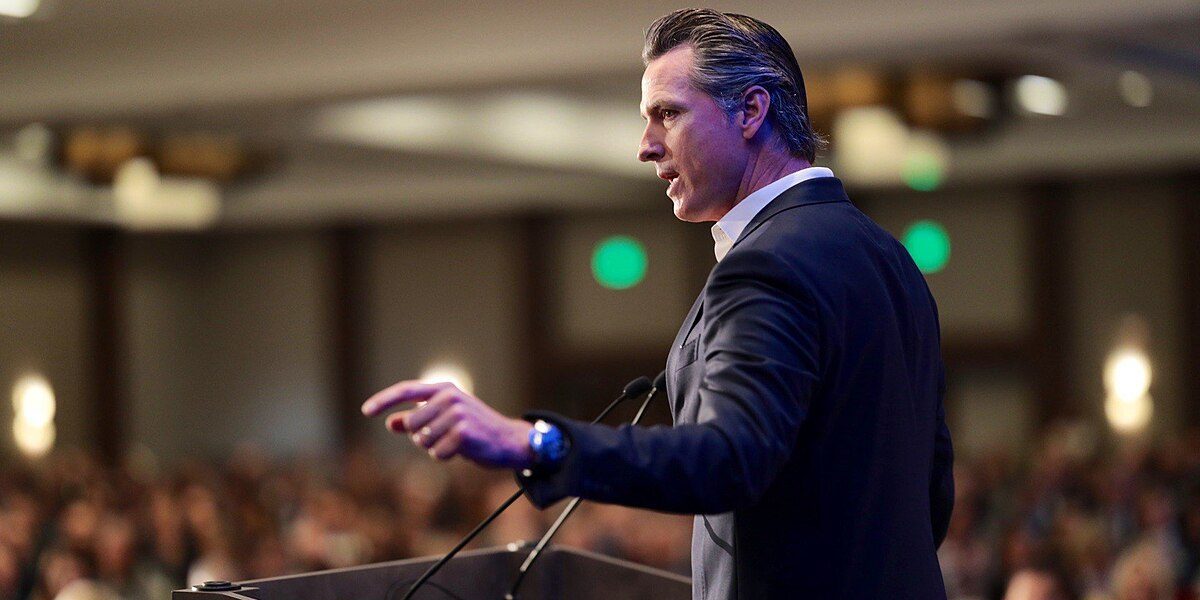The passage of Prop 50 – Can the Democrats beat Trump by playing his game?
While the success of Zohran Mamdani’s mayoral campaign in New York City has dominated the news cycle, 33 other states also held elections on November 4th – some mayoral and others not. One of these was California’s statewide special election, in which voters approved Proposition 50. Over 60% of Californians voted in favour of the bill, following a majority of early voters supporting it.
Proposition 50 is a constitutional amendment introduced by California Governor Gavin Newsom in June, in direct response to the Texas redistricting approved by their legislature in early July. Both measures are attempts to redraw congressional district maps to gain seats that would otherwise be held by the other party. They are controversial and considered political malpractice by most, and yet have now passed in both states.
In June, The New York Times reported that the Trump administration had urged Texas Governor Greg Abbott to reshape the state’s legislative boundaries to favour Republicans. They would do this by redrawing districts within cities and extending them out to rural areas, where Republicans typically garner more support. This stemmed from Trump’s concern that a Republican loss in the 2026 midterm elections could damage his legislative agenda. While Texas Republicans expressed concern that the measure would hurt incumbent Republicans, an official associated with Donald Trump warned them that the President was taking note of who supported his plan.
Newsom made it clear that his decision to move forward with Prop 50 was simply a retaliation effort, and told Donald Trump in a letter that if other states called off their redistricting efforts, he would too
Republicans in Texas currently hold 25 of the 38 seats available in the state, and the new redistricting measure positions them to grab as many as five new seats. These seats go straight to the House of Representatives, where they currently have a slim majority of only six seats. The Republicans are relying on support through the 2026 midterms to flip seats, which would create a much easier pathway for Trump to push his conservative agenda through Congress.
Texas Democrats attempted to halt the passage of the new redistricting by leaving the state, denying Republicans a quorum to vote on it. Most went to Chicago, while others travelled to New York. Governor Abbott threatened to fine them $500 a day and remove them from office if they did not return the next day – and none did. It was then that Gavin Newsom proposed his plan to counter the Texas redistricting attempt with an identical effort in California – Proposition 50. His plans position the Democrats to gain five extra seats in the midterms next year – the same amount that the Republicans in Texas are looking to achieve.
Newsom made it clear that his decision to move forward with Prop 50 was simply a retaliation effort, and told Donald Trump in a letter that if other states called off their redistricting efforts, he would too. Trump did not respond to the letter, so Newsom announced a special election for Prop 50 on November 4.
Gavin Newsom made it clear that he understood the discomfort of voting in favour of gerrymandering. “This is not the fight we chose, but it’s a fight we will fight,” he said in acknowledgement.
Is having a one-up on Trump worth the guilt of voting in favour of gerrymandering?
Before the election on November 4, 43% of Californians indicated that they would vote ‘No’ on Prop 50. Arnold Schwarzenegger, former Governor of California who endorsed Kamala Harris in the 2024 Presidential election, opposed the amendment, urging Californians to oppose the redistricting ballot measure. “There’s this war going on all over the United States – who can out-cheat the other one?” He says the solution is “outperforming Trump” rather than redistricting.
Other residents are worried that they will now be represented by someone living far away, as districts are redrawn to merge city and rural lines. Ryan Schohr, a farmer living in a rural region just north of Sacramento, told The New York Times that “a Republican represents this area’s interests much better than a Bay Area person can.” The slogan for the campaign against Prop 50 reads: ‘NO on 50: Defend Fair Elections’. Whether this campaign is run by Republicans who are trying to stop the Democrats from gaining any more seats next year, or citizens genuinely worried about the state of fair elections in America, Prop 50 poses an interesting moral question for the Californian Democrats:
Is having a one-up on Trump worth the guilt of voting in favour of gerrymandering?
Californians seem to think so. Gavin Newsom had to ask residents to “stop donating” as they had hit their budget goals and “raised what we need to pass Proposition 50.” Their campaign raised just over $120m, compared to the $40m raised by their opponents. Newsom brought in more than 100,000 people who had not given to his previous statewide campaigns or federal committee. This could give the governor an early monetary advantage for his likely 2028 presidential run, after a Democratic primary year that appears quite busy.
It seems that Californians see a vote for Prop 50 as a vote against President Trump, and as Newsom claims, “fighting fire with fire” may be the only way the Democrats can fight this administration with lasting impact. Many argue that the Democrats aren’t doing enough to push back against the Trump administration, but perhaps this is the beginning.

Comments